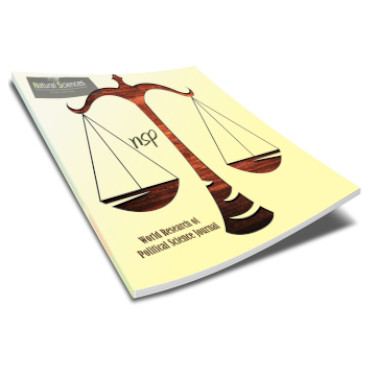
The World Research of Political Science Journal
Abstract
The economic bilateral ties between India and the United States of America (USA) have taken a new-fangled semblance over the past few years with a renewed vigor of geo-economic convergence, as the foundation for establishing a new normal in the bilateral relationship. Following the collapse of the erstwhile Soviet Union, India faced a lot of economic crises with the United States (US) that challenged the prevailing liberal economic integration. Post the Indo-US Nuclear Deal, economic considerations became a topmost priority where the US and India aimed for sustaining a high rate of economic growth which became a watershed moment for their bilateral economic dependence. A trend of economic illiberalism started contending the liberal international order through increased tariffs and trade sanctions whereby the USA terminated India’s progress in preferential trade practices under the Generalized System of Preferences (GSP) followed by shelving a lawsuit against India for receding exports. Whether the ever-increasing Sino-US tensions which recently have been triggered by the Coronavirus or COVID-19 pandemic, enabled the US to move towards India is a primary concern, thus creating strong grounds for geo-economic partnership through the forays of economic diplomacy. The paper, therefore, argues that the emerging dynamism between India and the USA through newer prospects of economic collaboration has followed a path of transition from illiberalism to diplomacy.
Recommended Citation
Basu, Sweta
(2020)
"India–USA Geo-Economic Convergence: A Transition from Economic Illiberalism to Economic Diplomacy,"
The World Research of Political Science Journal: Vol. 3:
Iss.
1, Article 4.
Available at:
https://digitalcommons.aaru.edu.jo/wrpsj/vol3/iss1/4

